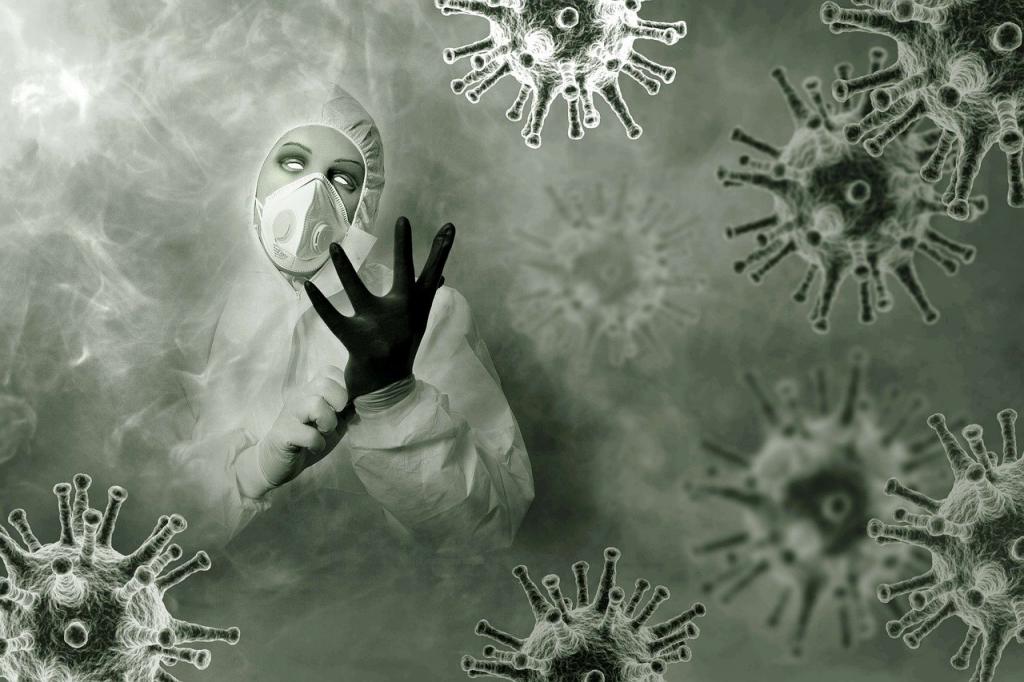Americans have lost faith in the government, business, schools, the media, and the church. What if now they lose faith in science?
Last time we looked at the new evidence that the COVID-19 virus may have been the product of genetic engineering at the Wuhan Institute of Virology, which was experimenting with coronaviruses and may have inadvertently infected employees.
A particularly nasty line of research is called “gain-of-function,” in which viruses are made more infectious and more deadly in order to study them better. This kind of genetic engineering is a controversial, to say the least, and for a while the Obama administration put a moratorium on the government funding it. But gain-of-function experiments were carried out at the Wuhan Institute of Virology.
Furthermore, the U.S. National Institute of Health, a top official of which is our current COVID czar Anthony Fauci, gave grants of some $3.4 million to the Institute. Dr. Fauci says that those grants did not fund gain-of-function research, but he admitted that he could not be sure that the money did not pay for such experiments. Besides, money used for one purpose frees up money to be used for other purposes.
But way back in 2012, Dr. Fauci wrote a paper for the American Society for Microbiology in which he defended gain-of-function research. And with staggering, breathtaking irony, he acknowledges that a scientist might get infected and trigger a pandemic! But he concludes that the risk would be worth it. Here is what he said:
In an unlikely but conceivable turn of events, what if that scientist becomes infected with the virus, which leads to an outbreak and ultimately triggers a pandemic? Many ask reasonable questions: given the possibility of such a scenario – however remote – should the initial experiments have been performed and/or published in the first place, and what were the processes involved in this decision?
Scientists working in this field might say – as indeed I have said – that the benefits of such experiments and the resulting knowledge outweigh the risks.
Benefits? Risks?
COVID-19 has killed nearly 4 million people worldwide. That includes nearly 600,000 Americans.
To put that in perspective, 405,000 Americans died in World War II. Covid has killed that many, plus half again. Covid has almost killed as many Americans as the Civil War, in which 650,000 of both sides lost their lives.
Those were national traumas. Shouldn’t we expect the COVID pandemic to be similarly damaging to the national psyche?
And if science actually caused those deaths–not to mention the shutdown of the economy, the lockdowns that took away for awhile our most basic liberties, and the lost year of education for our children–what will that do to the authority and the prestige of the scientific enterprise?
That has already taken a hit, as the scientific advice that we were enjoined to follow during the pandemic turned out to be inconsistent, ever-changing, and inaccurate.
Perhaps we can simply learn the truth that science is a human enterprise, that its findings are highly provisional, that it is a process for investigation rather than an oracle that delivers absolute truth. Scientists are human beings. I don’t think their mistakes about COVID were intentional, though attempts to cover them up may be.
We have been seeing in other ways that scientists can be easily cowed. What does science have to say, for example, about the transgender claim that a person can be “born in the wrong body”? I don’t think there are many scientists who dare to weigh in on that question. They are conditioned also by their own social class, by the groupthink of the academic world, and by the sources of their funding.
The scientific method is designed to correct for biases. One tenet of the scientific method is that experiments must be repeatable, with other researchers getting the same results, but it turns out now that we have a replication crisis in which many experimental findings cannot be reproduced.
This does not mean that science is not a great thing. If science engineered this virus–which has not been confirmed–it also engineered the vaccines that are stopping it. If scientists at first played down the Wuhan lab connections, other scientists are now insisting that they be investigated.
But scientists have often displayed a hubris that, as in Greek tragedies, pridefully denies their human limitations. By genetic engineering, they have been tampering with life itself. They experiment on human beings, using the bodies of aborted children, engendering human/animal hybrids, setting the stage for manufacturing “designer babies,” and taking on other anti-human projects.
If genetic engineering research has inadvertently killed millions, then their hubris has led to catastrophic tragedy. Just as Greek drama would predict.
Scientists have imposed few limitations on what they are willing to do, and neither has the public. Normally, entities that endanger human life and put the public at risk are subject to laws and regulations. Maybe that will happen now.
But what will the cultural implications be, if science turns out to have created COVID and caused the death of 4 million people? Will this discredit the whole scientific enterprise? That would be a shame. We have become dependent on technology, but that is the creation of engineers, not scientists, as such, though engineers are dependent on science. What would an anti-science backlash look like?
The perception is that our institutions have been failing us one after another. Americans have become disillusioned and cynical about the government, the nation, corporations, big tech, academia, public schools, journalism, even the family and the church. If we now lose faith in science, what is left for Americans to believe in?
Image by Syaibatul Hamdi from Pixabay













